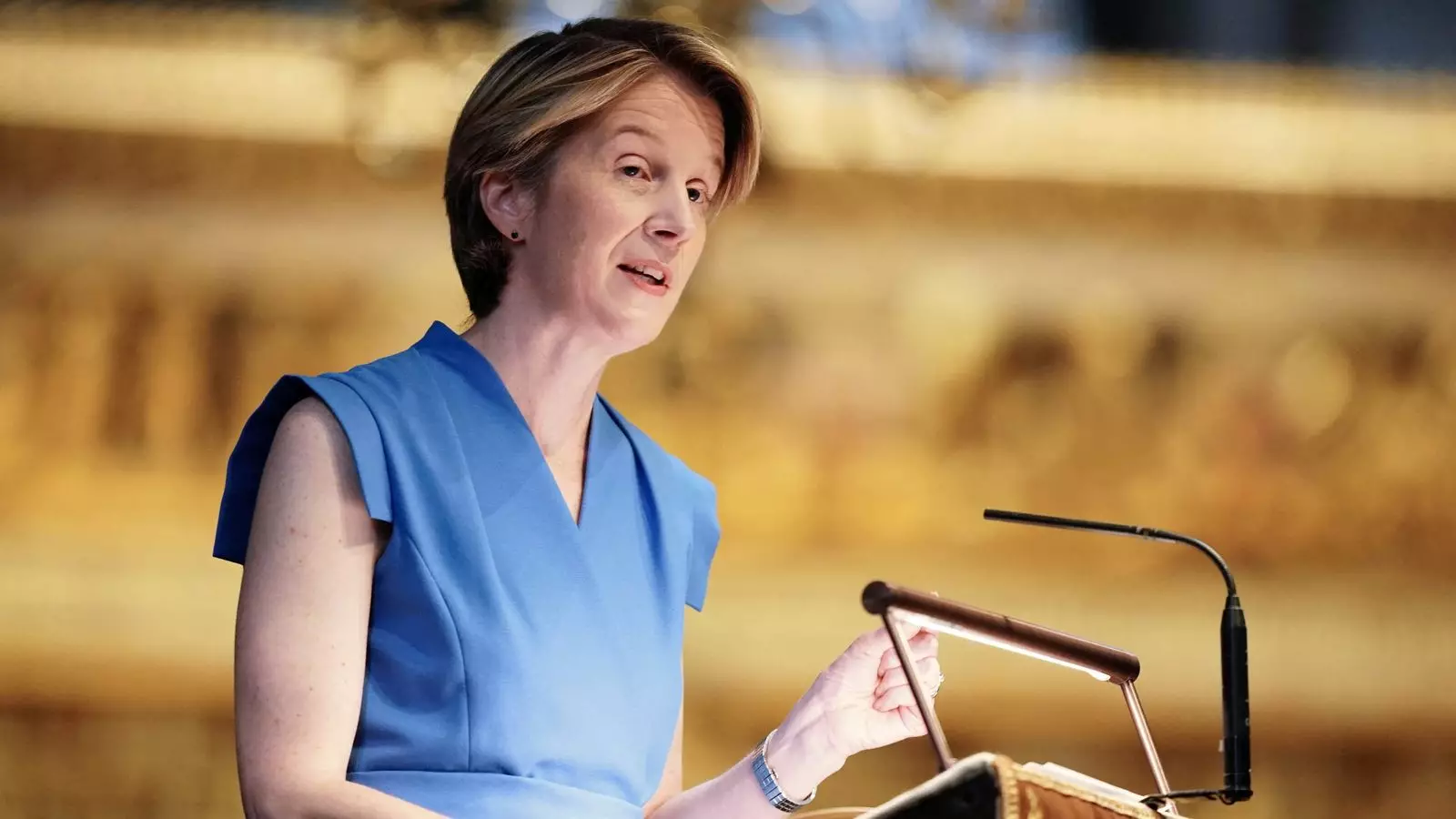The recent announcement of Amanda Pritchard’s resignation as head of NHS England marks a significant turning point not only for the organization but also for the large network of health services that depend on its guidance. Pritchard’s tenure, which began in 2021, was historic; she was the first woman to hold this prestigious position. Yet, despite her groundbreaking appointment, her resignation underscores the intense scrutiny and high expectations placed on leaders in the public health sector, especially amid unprecedented challenges like a global pandemic.
Pritchard’s role was not merely administrative. As the chief operating officer prior to her elevation, she was deeply entrenched in the operational frameworks that allowed NHS England to function. Her considerable experience also included her prior leadership of Guy’s and St Thomas’ NHS Foundation Trust, reflecting a career defined by a commitment to healthcare. Nonetheless, her departure comes in the wake of criticism that suggests a perceived inadequacy in transformational leadership during a time when such qualities are more necessary than ever.
The decision to step down followed intense scrutiny from cross-party committees within Parliament, which expressed frustrations over what they described as a lack of “drive and dynamism” under her leadership. Pritchard openly acknowledged this criticism, noting in her resignation statement that it was a “hugely difficult decision” but one that she felt was appropriate given the current state of recovery and the chances for the NHS to implement its “10 Year Health Plan.”
Amidst the pressures of navigating a health service emerging from the wreckage of a pandemic, it is not wholly surprising that Pritchard’s leadership faced challenges. The demands for drastic reform in a complex healthcare structure often lead to heightened expectations that can seem unattainable. Her candid admission that “we’re not all brilliant performers at committee hearings” reflects a broader theme of vulnerability and honesty in public service — qualities that the public often grapples with when assessing their leaders.
Despite the criticisms leveled at her, praise has also come from prominent figures such as Health Secretary Wes Streeting, who lauded her leadership during a turbulent period. He articulated that Pritchard should be “enormously proud” of how she navigated the substantial challenges orchestrated by the pandemic and the changing political landscape, which saw six different secretaries of state during her tenure. This tumultuous environment tested the mettle of any leader and demands an incredible level of resilience and adaptability.
Pritchard’s reflections on the substantial privilege of leading the NHS during its darkest hours resonate with many within the healthcare field. She highlighted the extraordinary dedication of NHS staff, asserting her confidence in their continued capability to deliver high-quality healthcare. Her faith in grassroots leadership is an acknowledgment that the institution’s strength lies not just in its executive decisions but also in the unwavering dedication of its workforce.
The Road Ahead: Transition and New Beginnings
Transitioning to the next chapter, Sir James Mackey has been appointed as the interim chief executive, set to take the reins starting April 1. Acknowledged for his experience as the chief executive of Newcastle Hospitals Foundation Trust and a national director of elective recovery, Mackey’s background signals a robust connection to the operational needs necessary for impactful leadership within NHS England moving forward. With the foundations that Pritchard established, Mackey will have the unique opportunity to build upon the recovery process while instigating innovative changes to fit contemporary demands.
As Amanda Pritchard moves on to the next phase of her career, her contributions to NHS England will likely be discussed for years to come. She leaves behind a legacy of navigating explosive challenges with integrity while highlighting the immeasurable value of the NHS’s healthcare professionals. The path forward is anything but clear, yet the need for courageous leadership to match the aspirations of a recovering health service has never been more critical. The future of NHS England lies in adapting to ever-evolving healthcare needs, and the next leader will face numerous tests as they guide this vital service into a new era.


Leave a Reply